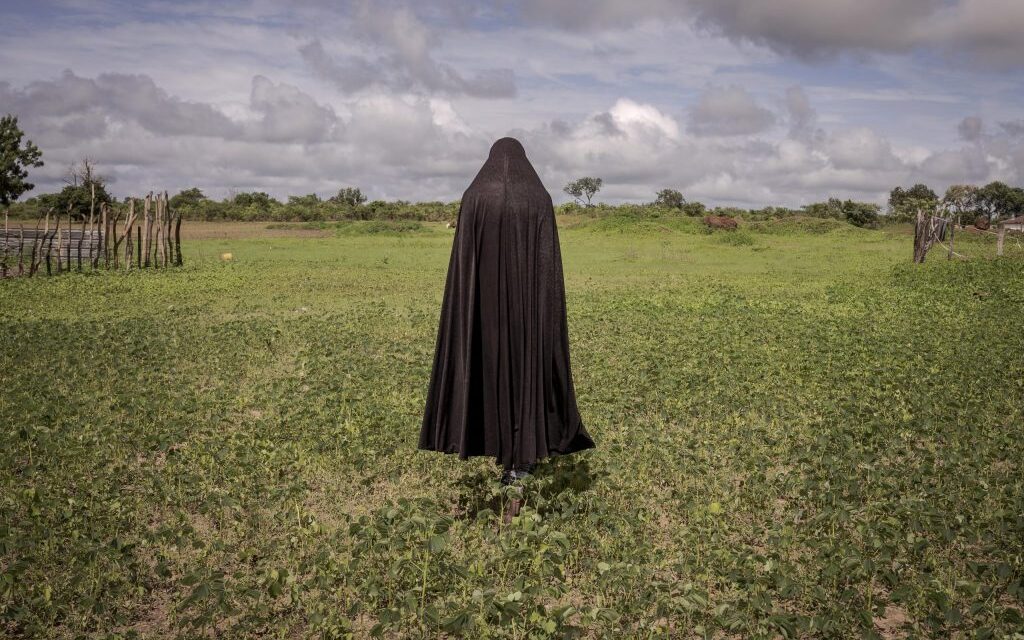By Lizzie Suber
AFRO Intern
lizziesuber@afro.com
A vote held by The Gambia’s National Assembly last month blocked recent efforts to repeal the Women’s (Amendment) Act of 2015, which criminalized female genital mutilation (FGM). This vote prevented The Gambia from becoming the world’s first country to undo a ban on FGM.
The World Health Organization (WHO) defines FGM as “partial or total removal of the external female genitalia, or other injury to the female genital organs for non-medical reasons.” The practice, which is typically performed on girls below the age of 15, is sometimes also referred to as female genital mutilation or cutting (FGM/C) or female circumcision.

Before it was banned, the practice was particularly popular in The Gambia, where it was typically performed for religious purposes.
“Today, more than 73 percent of girls and women aged 15 to 49 in the country have already undergone this harmful practice, with many subjected to it before their fifth birthday,” read a joint statement from United Nations Children’s Fund (UNICEF) Executive Director Catherine Russell; United Nations Population Fund (UNFPA) Executive Director Natalia Kanem; WHO Director-General Tedros Adhanom Ghebreyesus; United Nations (UN) Women Executive Director Sima Bahous and UN High Commissioner for Human Rights Volker Türk.
Although FGM has been illegal in The Gambia for nearly a decade, the procedure recently re-entered the arena of public opinion after three women were arrested in August 2023 for performing FGM procedures, marking the nation’s first FGM-related arrest. Conservative Gambian politicians subsequently began advocating for a reversal of the FGM ban in September of that year.
Assembly members voted in March 2024 to allow for a consideration of the proposed FGM ban reversal, known as the Women’s (Amendment) Bill, 2024. This move alarmed FGM critics worldwide.
“The proposed repeal of the ban on FGM, referred to as female circumcision in the 2015 Women’s (Amendment) Act, is a severe violation of human rights, and a setback in the global fight against gender-based violence,” Nafisa Binte Shafique, UNICEF representative in The Gambia, and Ndeye Rose Sarr, UNFPA representative in The Gambia, said in a joint statement, released in March 2024 after The Gambia voted to consider unbanning FGM.
“This move not only disregards the immense suffering experienced by survivors of FGM, but also undermines the progress made in raising awareness, changing attitudes and mobilizing communities to abandon this harmful practice,” continued the activists. “It sends a message that the rights and dignity of girls and women are expendable, perpetuating a cycle of discrimination and violence that has no place in a just and equitable society.”

On July 15, Speaker of the National Assembly Fabakary Jatta ruled that a bill seeking to unban FGM in The Gambia was rejected by members of the National Assembly after a 34-19 vote in favor of maintaining the ban. If the Gambian National Assembly had voted to accept the bill, The Gambia would have become the first nation in the world to undo a ban on FGM. Gambian decisionmakers received resounding international support from FGM critics following this decision.
“We commend the country’s decision to uphold the ban on female genital mutilation (FGM), reaffirming its commitments to human rights, gender equality and protecting the health and well-being of girls and women,” Russell, Kanem, Tedros, Bahous and Türk said in their joint statement, issued shortly after The Gambia’s ruling.
FGM is in no way unique to The Gambia. According to the U.S. Office on Women’s Health, FGM is most prevelant in the southern Sarhara and portions of northern and central Africa, the Middle East and Asia. The WHO reports over 230 million women alive today as having undergone FGM procedures.
A survey published in 2021 by co-sponsors the Gambia Bureau of Statistics and the Demographic and Health Surveys Program, an initiative headed by the U.S. Agency of International Development, found that Gambian citizens who believed FGM should not be banned most frequently cited religious obligation and the traditions behind the practice. Those against the procedure commonly justified their position by citing the harm FGM can cause.
The validity of FGM as a religious practice is controversial among those who practice Islam, which is the faith of most Gambian FGM advocates. Some Muslims claim FGM as an essential Muslim practice, while others denounce the custom. This tension has inspired efforts to disentangle Islam from FGM by both Muslim community members and unaffiliated organizations.
“FGM/C is not, therefore, religiously acceptable for a girl, because there is, first, no evidence that it was practiced by Prophet Muhammad (PBUH) and, second, it involves the risk of harm that is discouraged by an authentic Hadith that invokes a basic general rule that spans the generalities of this true religion, Islam,” said Gamal Serour, Ph.D., and Ahmed Ragaa Abd El-Hameed Ragab, Ph.D., in an executive summary of their report, “Female Circumcision (FGM/C): Between the Incorrect Use of Science and the Misunderstood Doctrine. The research was co-published by UNICEF and the International Islamic Center for Population Studies and Research at Al Azhar University.
Around the world, many organizations and prominent figures consider the active practicing of FGM to be a human rights crisis and see The Gambia’s recent vote as a testament to the fragility of FGM legislation. Several entities took time while the Women’s (Amendment) Bill, 2024 was still under consideration to acknowledge that efforts to end FGM must extend beyond legislative measures.
“We call for continued allocation of appropriate budgets and human resources and implementation, monitoring and effective enforcement measures on the law prohibiting FGM,” the UN in The Gambia said in a statement issued in February 2024. “Legal measures must be accompanied by awareness-raising campaigns to change societal norms, practices and attitudes towards FGM.”
The post The Gambia rejects bid to reverse ban on female genital mutilation appeared first on AFRO American Newspapers.












